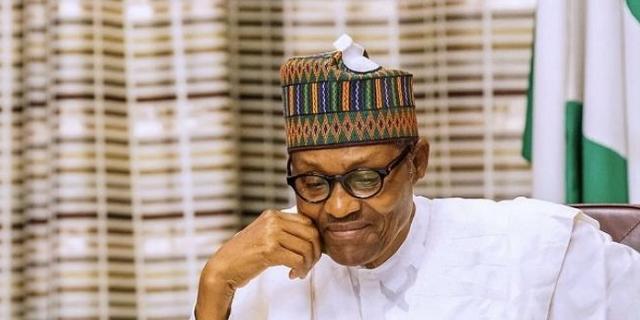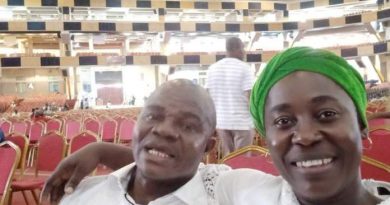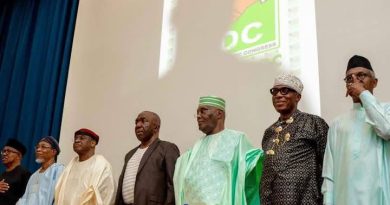The Unyielding Paradox: Muhammadu Buhari And The Soul Of Nigeria
By Prince Charles Dickson Ph.D.
“إِنَّا لِلَّٰهِ وَإِنَّ إِلَيْهِ رَاجِعُونَ””Verily, we belong to God, and verily to Him we return.” Surah Al-Baqarah (2:156)
“The death of an elderly man is like a burning library.”— Igbo Proverb
That afternoon I spent with Bubu in 2005, years before the improbable presidency, captured the core contradiction that would define General Muhammadu Buhari until his final breath: a man of unassailable personal integrity, seemingly destined to fail within a system built on compromise, yet whose very existence forced Nigeria to confront its deepest hypocrisies. His passing leaves not just a void, but an unresolved question echoing through the political arena: Can a fundamentally good man govern Nigeria? And of course who defines good?My recollection of the calm, principled figure – lamenting the absurdity of phantom electricity reforms and the waste of N40 million on “packaged nylon water” for a governor’s welcome – painted a portrait starkly at odds with the caricatures. Here was the “dreaded General,” yet his grief for Idiagbon and frustration with police extortion revealed a layer of empathy. He refused the lingua franca of Nigerian politics: the “brown envelopes,” the manufactured divine mandates (“Allah never told him he’d win”), the thuggery departments. His campaign, as I noted then, was “too organized to win a Nigerian election.” His honesty, I feared even then, was his greatest political liability. “Why do bad things happen to good people?” I asked. Buhari’s life was the answer, playing out on a national stage.
Against the odds prophesied in my interview, the miracle did happen. Coalition politics, driven by a nation weary of corruption and stagnation, propelled him to Aso Rock in 2015. It was a seismic shift, shattering the PDP’s “incumbency curse” and igniting unprecedented hope. For millions, Buhari was the ascetic patriot, the incorruptible “Baba.” His personal frugality was legendary; even fierce critics conceded he “never tried to enrich himself.” His victory felt like national catharsis, proof that integrity could, theoretically, triumph. His administration delivered tangible legacies: the long-awaited Second Niger Bridge, tried revitalizing railway networks, and a dogged, if deeply flawed, pursuit of anti-corruption– embodied by agencies like the EFCC, whose limitations he himself had presciently noted to you.
Yet, the presidency became the crucible where principle met the crushing weight of Nigeria’s complexities, and often, Buhari’s own limitations. The security promises that buoyed his campaign – crushing Boko Haram – dissolved into a metastasizing nightmare. “Technical defeat” claims rang hollow as ISWAP emerged, banditry engulfed the Northwest, and kidnappings became a national epidemic. The economy, battered by global shocks but also by policies like prolonged border closures and contentious currency pegs, plunged millions deeper into poverty. “Inflation soared while the poor mourned,” became a grim national refrain. The aloofness you sensed in his calm demeanor hardened into perceived detachment. He seemed remote in Abuja, his trusted inner circle often accused of shielding him or pursuing conflicting agendas. The “Lieutenant Problem,” as Abdulsalami Abubakar later acknowledged, was real: “his cabal failed him.”
His rigid integrity, a beacon to some, became a barrier to others. Efforts at national unity were undermined by perceptions, fair or not, of northern bias in key appointments and a perceived slowness to address escalating farmer-herder conflicts and killings. While significant infrastructure projects reached the Southeast (earning some Igbo praise), his perceived silence on deeper issues of marginalization fueled resentment elsewhere. The dot in the circle…The authoritarian shadow of his military past resurfaced disturbingly: The Twitter ban, the handling of the Lekki shooting, and the detention of journalists jarred against democratic ideals. He became, as I aptly foresaw, “the metaphor of the good, the bad and the very ugly” – loved and loathed with equal passion across ethnic and regional lines.
So, where does Buhari stand in the Nigerian conversation? He is the unfinished argument. His legacy is a double helix of aspiration and disappointment, integrity and ineffective governance. He proved that a man of personal probity could reach the pinnacle through coalition-building, defying the “brown envelope” system. Yet, he also proved that personal probity alone is woefully insufficient to heal a nation as fractured and complex as Nigeria. He inherited unprecedented goodwill and, for many, squandered it. He exposed the rot – the absurdity of a local government spending N40 million on water for a governor’s visit, as he lamented to me– but struggled to excise it.
To reduce Buhari to either saint or sinner is to miss the profound provocation of his life. He held up a mirror to Nigeria. His stubborn incorruptibility highlighted the pervasive corruption he fought, often unsuccessfully. His military discipline contrasted painfully with the chaos and impunity that festered under his democratic watch. His rise on a wave of popular disgust with the status quo demonstrated the people’s yearning for better, while his governance struggles revealed the Herculean difficulty of delivering it.
We bury a soldier, not a saint. A man whose handshake, as I cherished, felt like a rare connection with honesty in a landscape of deceit. Muhammadu Buhari was, ultimately, the leader Nigeria desperately needed to believe in, but perhaps not the one equipped to deliver the transformation it craved. He was the embodiment of a national yearning for integrity, yet also a testament to the limitations of integrity alone in the face of systemic decay, complex challenges, and the compromises inherent in democratic politics.
His struggle was Nigeria’s struggle. His failures, in many ways, were Nigeria’s failures. The fight he embodied – the fight for a nation governed by principle, not patronage; by service, not selfishness – continues. The question he leaves hanging in the humid Abuja air, more poignant than ever, is the one I posed that afternoon long ago: “When will the likes of Buhari or even better win an election?” And more crucially: If they win, can they truly govern? The search for an answer to that is Buhari’s most enduring, and unsettling, legacy. The fight continues—May Nigeria win!




